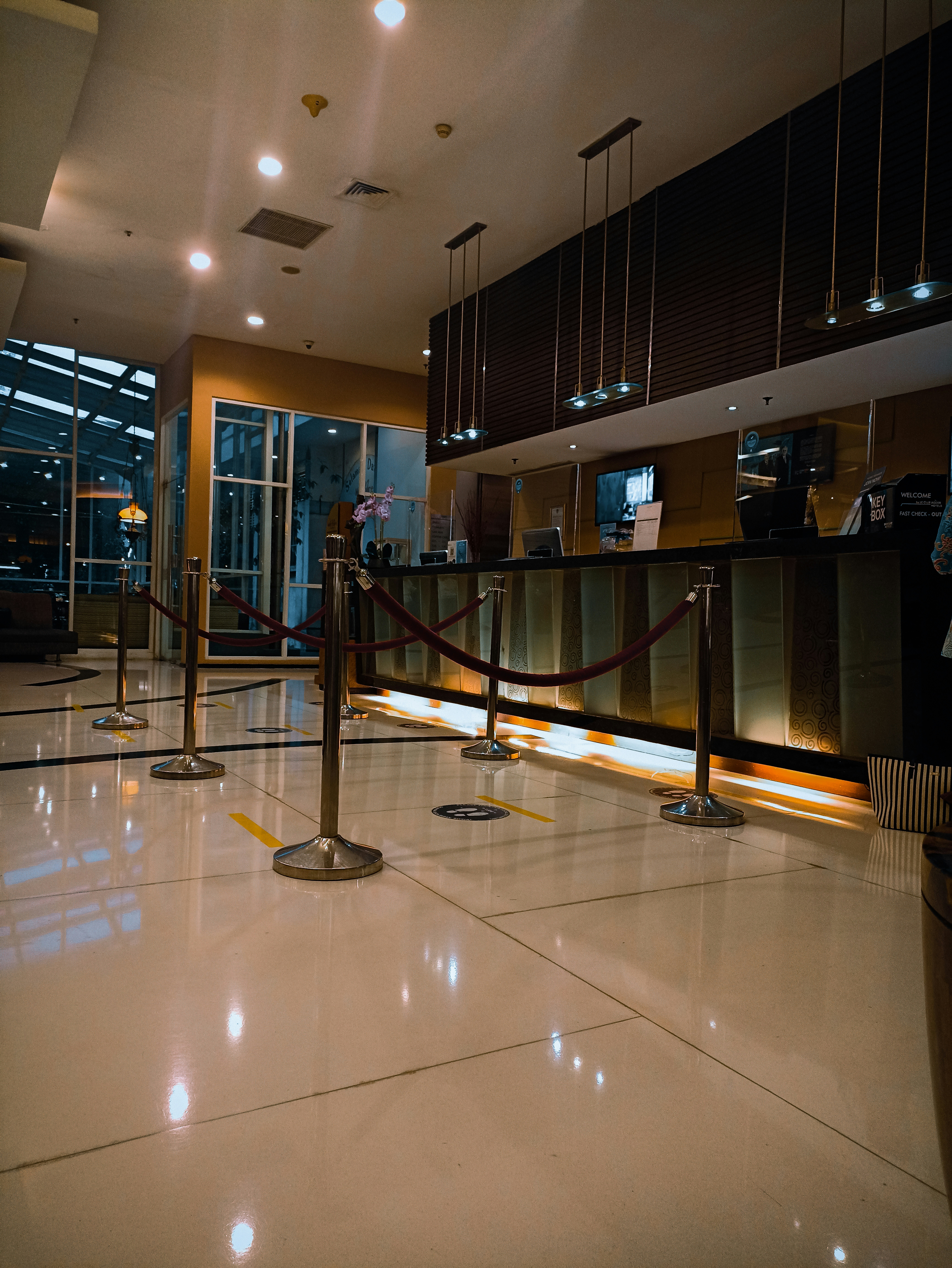Introduction to Green Hospitality
Green hospitality refers to the integration of environmentally conscious practices within the hotel industry, showcasing a commitment to sustainability while providing guests with exceptional service. In recent years, there has been a significant shift in consumer awareness regarding environmental issues, prompting hotels to rethink their operations and embrace eco-friendly innovations. This transformation reflects not just the ethical responsibilities of the hospitality sector, but also the evolving expectations of consumers who increasingly prioritize sustainability in their travel choices.
The significance of sustainable practices in the hotel industry cannot be overstated. With climate change and resource depletion becoming pressing global challenges, the hospitality sector has a pivotal role in mitigating its environmental impact. By adopting sustainable practices, hotels not only contribute to the preservation of natural resources but also enhance their brand reputation and appeal to a growing demographic of eco-conscious travelers. For instance, initiatives such as using renewable energy sources, minimizing waste, and sourcing local organic products demonstrate a tangible commitment to sustainability.
The response from the hospitality industry has been multifaceted. Many hotels are now pursuing certifications such as LEED (Leadership in Energy and Environmental Design) and Green Key, which serve as benchmarks for eco-friendly practices. Additionally, numerous innovative solutions have emerged, catering to both operational efficiency and guest satisfaction. As hotels invest in sustainable technology, observe water conservation measures, and embrace eco-friendly designs, they lay the groundwork for a more responsible and supportive travel experience.
As we delve deeper into the latest eco-friendly innovations and practices in the hotel industry, it becomes evident that green hospitality is not merely a trend; it is an essential and ongoing evolution that benefits not just the environment, but also the future of the hospitality sector itself.
The Importance of Sustainability in the Hospitality Industry
Sustainability has emerged as a critical focus for the hospitality industry, necessitated by both evolving consumer expectations and the pressing environmental challenges of our time. The hotel sector is responsible for a significant portion of carbon emissions, energy consumption, and waste generation. As such, the need for sustainable practices is not merely a trend, but a fundamental shift towards minimizing the environmental footprint associated with hospitality operations. Addressing these issues through eco-friendly innovations is essential for fostering a sustainable future for the industry.
The rise of eco-conscious travelers has been a pivotal factor influencing sustainability in hotels. Modern consumers are increasingly making choices based on environmental considerations, often favoring establishments that demonstrate a commitment to eco-friendly practices. This shift in consumer behavior is shaping market demands, prompting hotels to adopt greener technologies, such as energy-efficient lighting, water conservation systems, and sustainable sourcing for food and amenities. By aligning their offerings with these values, hotels can attract a more discerning clientele committed to sustainability.
Moreover, implementing sustainable practices can yield numerous benefits for hotels, including enhanced brand loyalty. When guests recognize a hotel’s commitment to environmental stewardship, they are more likely to return and recommend the establishment to others. Additionally, eco-friendly innovations often lead to cost savings, particularly when energy-efficient technologies reduce operational expenses. Hotels that invest in sustainable solutions invariably find themselves in a stronger competitive position in the market.
Finally, sustainability extends beyond the hotel’s immediate environment; it also encompasses positive contributions to local communities. By supporting local businesses and engaging in community-driven initiatives, hotels can help boost local economies while solidifying their role as responsible citizens. In embracing sustainability, the hospitality industry not only protects the planet but also enhances its reputation and long-term viability in an increasingly eco-conscious world.
Energy Efficiency Innovations
In the pursuit of sustainability, the hospitality sector has increasingly adopted various energy-efficient technologies to minimize its environmental impact. Among these innovations, smart thermostats have emerged as a pivotal solution. These devices automate heating and cooling processes by adjusting temperatures based on occupancy patterns. By ensuring that energy is not wasted when rooms are unoccupied, hotels can achieve significant reductions in energy consumption while also enhancing guest comfort.
Furthermore, energy-efficient lighting systems have become a staple in eco-friendly hotels. LED lighting is widely favored because it consumes substantially less energy than traditional incandescent bulbs while having a longer lifespan. This transition has not only reduced electricity costs but also lowered carbon footprints, illustrating the vital role of lighting in energy management strategies. Hotels are now increasingly replacing older lighting technologies with LED solutions that promote energy efficiency.
Solar energy systems are another innovation making strides in the hospitality industry. Many hotels are implementing rooftop solar panels to harness renewable energy, providing a sustainable power source that can be utilized for daily operations. Not only do these systems contribute to substantial savings on energy bills, but they also align with the growing demand for sustainable practices from environmentally-conscious travelers.
To further enhance energy efficiency, hotels are adopting comprehensive energy management systems (EMS). These sophisticated tools enable hotel managers to monitor, analyze, and optimize their energy usage continuously. By integrating EMS into their operations, hotels can identify inefficiencies and implement targeted strategies for improvement. Case studies of hotels that have effectively utilized energy-efficient technologies reveal substantial reductions in energy consumption, often leading to improved guest satisfaction and increased profitability. As the industry evolves, these innovations not only contribute positively to the environment but also enhance the overall guest experience, showcasing how energy efficiency can be a win-win for all stakeholders involved.
Water Conservation Techniques
Water conservation is increasingly becoming a critical concern within the hospitality industry, as hotels strive to minimize their environmental impact and cater to eco-conscious travelers. With the implementation of innovative water-saving technologies, hotels can significantly reduce their water consumption while maintaining guest comfort and satisfaction.
One notable advancement in this area is the utilization of low-flow fixtures. These fixtures, which include showerheads, faucets, and toilets, are designed to use significantly less water without compromising performance. For instance, low-flow showerheads can reduce water usage by up to 50%, making them an effective solution for hotels aiming to decrease their water waste. Many establishments have successfully integrated these fixtures into their operations, showcasing an admirable commitment to sustainability.
Another effective water conservation method is rainwater harvesting. This technique involves the collection and storage of rainwater for non-potable uses, such as irrigation or toilet flushing. By capturing rainwater, hotels can significantly reduce their reliance on municipal water sources. Many eco-friendly hotels have installed sophisticated rainwater harvesting systems, allowing them to utilize an abundant and free resource while promoting environmental stewardship.
Greywater recycling systems represent another innovative solution being adopted by hotels striving for sustainability. These systems treat and reuse water from sinks, showers, and laundry for landscape irrigation and other non-potable applications. By implementing greywater recycling, hotels can dramatically decrease their overall water consumption. Several renowned hotels have implemented these systems, resulting in substantial water savings and demonstrating a proactive approach towards environmental responsibility.
Overall, by embracing water conservation techniques, hotels can play a crucial role in promoting sustainable tourism. As the industry continues to evolve, adopting such eco-friendly innovations will be essential in meeting the demands of an increasingly environmentally aware clientele while conserving vital water resources.
Waste Management and Recycling Initiatives
In the hospitality industry, effective waste management is increasingly recognized as a crucial component of sustainable practices, driving hotels to adopt innovative recycling initiatives. The significant amounts of waste generated by hotels necessitate a proactive approach to minimize environmental impact. By focusing on composting, implementing recycling programs, and reducing single-use plastics, hotels are not only conserving resources but also enhancing their reputation as eco-friendly establishments.
Composting has emerged as a beneficial strategy for hotels aiming to reduce food waste. Many establishments are now establishing on-site compost bins to collect organic material from their kitchens and dining areas. This organic waste can then be transformed into nutrient-rich compost, which can be utilized in landscaping or culinary gardens on hotel grounds. For example, well-known hotel chains like Hilton have created partnerships with local farms to support composting efforts, ensuring that food scraps do not end up in landfills but instead contribute positively to local agriculture.
In addition to composting, hotels are increasingly embracing recycling initiatives. Implementing dedicated recycling bins throughout the property encourages both staff and guests to participate in waste segregation. Properties such as the Four Seasons have introduced robust recycling programs that track waste reduction progress and educate stakeholders on the environmental benefits of recycling. By collaborating with local waste management agencies, hotels can ensure that recyclable materials are processed responsibly, further minimizing their carbon footprint.
Moreover, the reduction of single-use plastics is another vital element of effective waste management in the hospitality sector. Many hotels are now opting for reusable alternatives, such as glass water bottles and refill stations, which significantly cut down on plastic waste. By reducing reliance on single-use items, hotels are not only promoting sustainability but also appealing to an environmentally conscious customer base.
Through these innovative waste management and recycling initiatives, hotels can make a meaningful impact on environmental sustainability while enhancing their service offerings. As the industry moves towards greener practices, the significance of responsible waste management will continue to grow, driving further eco-friendly innovations in hospitality.
Sustainable Sourcing and Food Initiatives
In recent years, the hospitality industry has witnessed a notable shift towards sustainability, particularly in the area of food sourcing and waste management. Many hotels are adopting farm-to-table concepts, which emphasize the importance of sourcing local and organic ingredients for their restaurants. This approach not only supports local farmers and economies but also significantly reduces the carbon footprint associated with transporting food over long distances. By prioritizing seasonal produce and locally sourced meats, hotels are able to offer guests fresh and flavorful dining options while promoting environmentally-friendly practices.
The implementation of sustainable sourcing practices has become more critical than ever, especially considering the significant amount of food waste generated by hotels. According to industry reports, approximately 20 to 40% of food produced for consumption is wasted in the hospitality sector. To combat this pressing issue, hotels are developing innovative food initiatives aimed at minimizing waste and optimizing resource usage. Some establishments are adopting composting programs, which recycle food scraps into valuable organic material for gardening or landscaping. Others are partnering with food banks and local charities to donate excess food, ensuring that it reaches those in need rather than ending up in landfills.
Several hotels have successfully integrated these sustainable food initiatives into their operations. For example, a prominent hotel chain has launched an initiative to reduce food waste by tracking inventory more effectively and adjusting portion sizes accordingly. This proactive approach has not only helped minimize waste but has also enhanced guest satisfaction by providing appropriately sized meals. Furthermore, numerous hotels have embraced educational programs, where chefs conduct workshops for guests on sustainability in cooking and food preservation techniques, fostering an awareness of eco-friendly practices.
Ultimately, by embracing sustainable sourcing and implementing innovative food initiatives, hotels play a crucial role in transforming the hospitality industry’s relationship with food. These advancements signify a commitment to environmental responsibility and public health, ensuring that the delicious culinary experiences offered to guests also have a positive impact on the planet.
Eco-Friendly Room Design and Construction
In recent years, the hospitality industry has witnessed a significant shift towards eco-friendly room design and construction, reflecting a growing commitment to sustainable practices. The foundation of this approach lies in the selection of sustainable materials that minimize environmental impact while ensuring comfort and aesthetic appeal. Hotels increasingly utilize materials sourced from renewable resources, such as bamboo flooring, reclaimed wood, and recycled metal fixtures. These choices not only reduce deforestation but also promote a circular economy that supports local craftsmanship.
Moreover, the adoption of green building certifications, such as LEED (Leadership in Energy and Environmental Design) and BREEAM (Building Research Establishment Environmental Assessment Method), has become crucial in the design process. These certifications offer a framework for assessing a building’s sustainability, thereby guiding architects and designers in integrating energy-efficient technologies, water conservation systems, and sustainable landscaping. By committing to such rigorous standards, hotels demonstrate their dedication to environmental stewardship and resource efficiency.
Innovative designs also play a pivotal role in enhancing energy efficiency within hotel rooms. For example, the incorporation of large windows not only invites natural light but also encourages passive solar heating, reducing the need for artificial light and heating. Furthermore, the implementation of advanced insulation materials ensures optimal indoor climate control, minimizing energy consumption for heating and cooling systems. Smart technologies, such as programmable thermostats and energy monitoring systems, empower guests to manage their energy usage effectively, further promoting sustainability during their stay.
In essence, eco-friendly room design and construction in hotels exemplify a holistic approach to sustainability that encompasses material selection, certification adherence, and innovative architectural features. These practices not only enhance the guest experience but also contribute to the preservation of our planet’s resources, making green hospitality an essential aspect of modern hotel operations.
Technology and Green Innovations
The integration of technology in the hospitality industry has paved the way for a sustainable future. Hotels are increasingly adopting smart technologies to enhance their operational efficiency while minimizing their environmental footprint. For instance, energy management systems equipped with sensors allow hotels to monitor and adjust energy usage in real-time. This not only reduces consumption but also lowers operational costs, allowing hotels to invest more in eco-friendly initiatives.
Smart thermostats and automated lighting systems are examples of how technology can streamline energy management, ensuring that energy is used only when necessary. These systems can automatically adjust settings based on occupancy, reducing energy waste without compromising guest comfort. Furthermore, the use of mobile apps enables guests to control room settings, such as lighting and temperature, thereby optimizing energy use during their stay.
In addition to energy efficiency, technology is playing a crucial role in waste management. Digital inventory management systems help hotels track supplies and predict demand, minimizing over-purchasing and reducing food waste. Meanwhile, guest-facing technologies, such as QR codes for menus or digital check-ins, limit the reliance on paper products, further promoting sustainability.
As the landscape of green hospitality continues to evolve, future technological advancements promise even greater innovations. Emerging technologies such as artificial intelligence and the Internet of Things (IoT) can offer unprecedented levels of insight into operational efficiency, enabling hotels to target waste reduction and energy conservation more effectively. By leveraging these advancements, hospitality providers can enhance both guest experiences and environmental stewardship.
Ultimately, the intersection of technology and sustainability in the hotel industry highlights a path toward green hospitality, where innovative solutions support eco-friendly practices, leading to a more sustainable future for both businesses and their guests.
Guest Involvement and Education in Sustainable Practices
As the hospitality industry increasingly prioritizes eco-friendly innovations, the role of guests in supporting and participating in sustainable practices has become pivotal. Hotels are now more than ever recognizing that fostering a culture of sustainability within their establishments goes beyond mere policy implementation; it requires active involvement from guests. This engagement can manifest in various ways, from educational programs to volunteer opportunities, all aiming to promote awareness and inspire action.
One effective strategy employed by hotels is the development of educational programs designed to inform guests about sustainable practices. Such initiatives may include workshops on energy conservation, water-saving techniques, and the importance of local biodiversity. By participating in these programs, guests gain invaluable insights into how their actions can impact the environment, both during their stay and beyond. Additionally, well-crafted informational materials, such as brochures or digital content, can serve as effective resources that demonstrate the hotel’s commitment to sustainability and encourage guests to adopt similar practices in their daily lives.
Volunteering opportunities also present an excellent avenue for guest involvement. Hotels can collaborate with local environmental organizations to offer initiatives such as tree planting, beach clean-ups, or wildlife conservation efforts. By providing guests with the chance to contribute positively to the local ecosystem during their stay, hotels not only enhance the guest experience but also foster a sense of community and shared responsibility towards sustainable practices.
To further encourage participation, hotels can introduce incentives for guests who actively engage in eco-friendly initiatives. This might involve discounts for opting-out of daily housekeeping, rewards for using reusable water bottles, or recognition programs that celebrate guests who embody sustainable practices. Such incentives promote a behavioral shift towards greener lifestyles, thereby facilitating a collaborative effort in ensuring that sustainability becomes an integral aspect of the hospitality experience.


